This article was co-authored by Jessica Swenson. Dr. Jessica Swenson is a Community Psychologist & Licensed Clinical Therapist and the Founder of Transformative Growth Counseling. With over 10 years of experience, she specializes in relationships—both romantic and familial. She earned her PhD in Community Psychology from National Louis University and her MS in Clinical Psychology from Roosevelt University. She’s also a Certified Clinical Trauma Professional.
This article has been viewed 115,395 times.
It's your anniversary and everything is perfectly set, the flowers, the chocolate, and even some champagne. Then, you notice you are missing something, maybe it's a condom, some lube, or birth control. You need the item but you are dreading the thought of going to the store to purchase it. Despite your nervous feelings, you can deal with purchasing embarrassing or sex-related items appropriately by controlling or coping with certain aspects of the shopping experience, changing your thinking about the situation, and managing your embarrassment.
Steps
Controlling the Shopping Situation
-
1Pick the right store. Pick a store that you know well in order to easily locate your particular item. Or, go to a store outside of your neighborhood in order to avoid running into people you know.[1]
- Try going to a specialty sex-shop. The best part of buying from these types of locations is that you can easily play it off like you are buying a joke gift for a friend, or a party favor for a bachelorette party. This could also reduce your sense that someone may be judging you negatively by your purchase.
-
2Get social support. Going with a friend or partner can help deflect some of your embarrassment by serving as a social buffer or even a distraction for your embarrassment. [2]
- Ask your partner to join you on your trip to the store.
- Tell a friend you need moral support in buying your embarrassing item.
-
3Purchase other items. Buying just the personal item can feel like it is drawing attention to yourself and may lead to increased feelings of embarrassment.[3] [4] Instead, buy multiple items in order to camouflage your purchase.
- Get a bag of chips, gum, or soda to lessen the embarrassment. The more items the better.
-
4Find a cashier that is similar to you. Using coping strategies when buying sex-related items, such as going to a checkout stand with a similar person to yourself (the same gender and around the same age as you), can reduce embarrassment.[5] This is a very common coping resource for avoiding embarrassment in purchasing personal products. It can be very embarrassing to checkout sexual items with a different sex or someone with a huge age difference.
- If you can't find someone like you, try to find the person that is the best fit or that you think will produce the least amount of embarrassment for you.
-
5Distract yourself or look busy during checkout. This helps to draw less attention to yourself, and reduces the likelihood of engaging the cashier in small talk in order to avoid an awkward moment.
- Be polite, but avoid too much eye contact or small-talk with the cashier.
- Look at a magazine in the checkout stand.
- Text or be on the phone while waiting for checkout.
-
6Use the self-checkout system if available. This may reduce the feeling that someone is watching you or judging your purchase. Studies have shown that decreasing the sense of a social presence around you can decrease feelings of embarrassment when purchasing a personal item.
-
7Continue to practice. Embarrassment about buying personal items lessens with experience.[6] This is due to the idea that the more you do something, the more comfortable you are with that activity; the same thing goes for buying embarrassing items. So, the more experience you get buying these items the less uncomfortable you will feel. You may even begin to tolerate feeling embarrassed over time.
Changing your Thinking about the Situation
-
1Think positively about the situation and your embarrassment. It is important to take control of your thinking and reduce negative thinking about the situation. This limits the likelihood of you feeling excessively embarrassment; this is due the idea that our thoughts directly influence our feelings.
- Think thoughts such as, “I can do this; it isn't that bad!”
- Look for the humor in the situation. Isn't is funny that in society we buy these items in front of other people?
-
2Remind yourself that the employees deal with this on a regular basis. Remember that the cashiers at these stores ring up the same items all of the time. You're probably not the first person to buy this item at their register, and you most likely won't be the last.[7]
- Think something like, “This person is probably not thinking negatively about me, they deal with this sort of thing all the time!”
-
3Identify the risks of avoidance. Unfortunately, embarrassment when buying sexual contraceptives such as condoms can lead to unsafe sex and possible pregnancy.[8] Thus, reducing embarrassment or coping with it is crucial to maintaining a healthy lifestyle with regard to your sex life.
- Think about the consequences of not buying the product; could it lead to pregnancy, an STD, or uncomfortable sex?[9]
- Some people may steal in order to get personal items to reduce embarrassment. Know that this behavior could get you arrested.
Managing and Reducing your Embarrassment
-
1Acknowledge and learn the cause your embarrassment. In order to manage your embarrassment, you first need to own it and understand it. Embarrassment is the feeling of awkwardness or humiliation when we believe we are being negatively evaluated by another. [10] Learn why you get embarrassed about buying sexual items in order to fully grasp what may need to change (thoughts or behaviors) in order to reduce your embarrassment.
- Identify what thoughts result in you feeling embarrassed about buying personal or sex-related items. Is it because you are worried about what other people are thinking about you? Is it because you are afraid you will run into someone you know? Understanding the specific components that produce embarrassment or fear for you will be helpful in developing ways of coping with the situation.
-
2Recognize that you are not alone. For example, most individuals who purchase condoms do so by going to a store. Only about 5% of people get them from a medical clinic, and even less (.4%) purchase them online.[11] Additionally, one study showed that approximately 55% of men and about 69% of women found condom purchasing to be embarrassing.[12] This means it is quite common to feel embarrassed when buying personal or sex-related items.
- When you are worried about the situation, remember that most people who buy personal products such as condoms, go to a store to do it. If they can do it, so can you!
- When you are worrying about feeling embarrassed while buying a personal product, remind yourself that others feel similarly in your situation.
-
3Accept your feelings. Acceptance of your emotions is crucial to becoming motivated to better yourself and make positive changes, such as confidently buying personal items. Also, as previously stated, over half of shoppers report feeling embarrassed when buying items like condoms.[13] Accept that embarrassment is a normal and natural emotion, especially when dealing with buying private items.[14]
- When you are feeling embarrassed, think to yourself, “It is okay that I am feeling this way. Many people feel embarrassed in this very situation.”
-
4Become familiar with the product. Studies suggest that the more comfortable and familiar you are with the particular product you are buying, the less embarrassed you will feel. This also reduces the amount of lingering time you spend in the aisle trying to find your product. Know where it is and how to easily get it.
- Research the product online, read the instructions, side effects, etc.
- Pick a particular type, brand, and specific store that stocks the product.
References
- ↑ https://www.researchgate.net/profile/Sarah-Moore-74/publication/6668409_Coping_with_condom_embarrassment/links/54c165110cf2dd3cb9586df3/Coping-with-condom-embarrassment.pdf
- ↑ https://www.researchgate.net/profile/Sarah-Moore-74/publication/6668409_Coping_with_condom_embarrassment/links/54c165110cf2dd3cb9586df3/Coping-with-condom-embarrassment.pdf
- ↑ http://www.acrwebsite.org/volumes/v40/acr_v40_13074.pdf
- ↑ https://www.researchgate.net/profile/Sarah-Moore-74/publication/6668409_Coping_with_condom_embarrassment/links/54c165110cf2dd3cb9586df3/Coping-with-condom-embarrassment.pdf
- ↑ https://www.researchgate.net/profile/Sarah-Moore-74/publication/6668409_Coping_with_condom_embarrassment/links/54c165110cf2dd3cb9586df3/Coping-with-condom-embarrassment.pdf
- ↑ https://www.researchgate.net/profile/Sarah-Moore-74/publication/6668409_Coping_with_condom_embarrassment/links/54c165110cf2dd3cb9586df3/Coping-with-condom-embarrassment.pdf
- ↑ https://www.huffpost.com/entry/sex-toys-the-shame-free-guide_n_5759210
- ↑ https://www.researchgate.net/profile/Sarah-Moore-74/publication/6668409_Coping_with_condom_embarrassment/links/54c165110cf2dd3cb9586df3/Coping-with-condom-embarrassment.pdf
- ↑ https://nationalcoalitionforsexualhealth.org/media-center/ncsh-in-the-news/10-things-to-know-if-you-want-to-stop-using-condoms
- ↑ https://www.researchgate.net/profile/Sarah-Moore-74/publication/6668409_Coping_with_condom_embarrassment/links/54c165110cf2dd3cb9586df3/Coping-with-condom-embarrassment.pdf
- ↑ https://www.researchgate.net/profile/Sarah-Moore-74/publication/6668409_Coping_with_condom_embarrassment/links/54c165110cf2dd3cb9586df3/Coping-with-condom-embarrassment.pdf
- ↑ https://www.researchgate.net/profile/Sarah-Moore-74/publication/6668409_Coping_with_condom_embarrassment/links/54c165110cf2dd3cb9586df3/Coping-with-condom-embarrassment.pdf
- ↑ https://www.researchgate.net/profile/Sarah-Moore-74/publication/6668409_Coping_with_condom_embarrassment/links/54c165110cf2dd3cb9586df3/Coping-with-condom-embarrassment.pdf
- ↑ https://pubmed.ncbi.nlm.nih.gov/17129896/
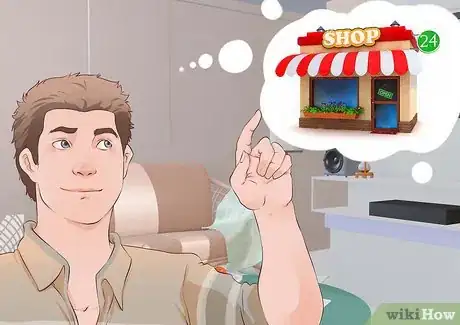





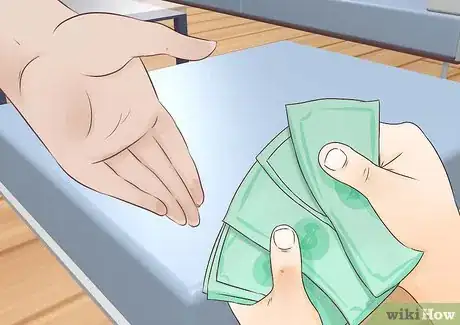
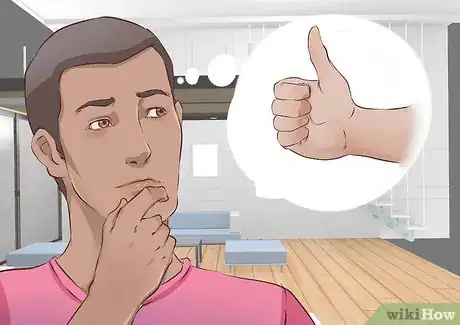

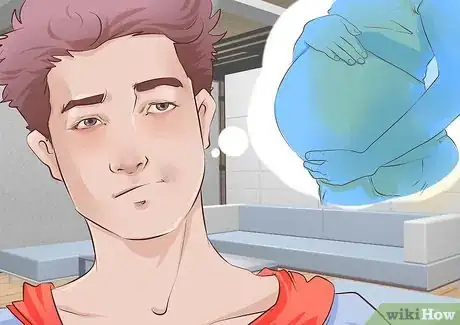

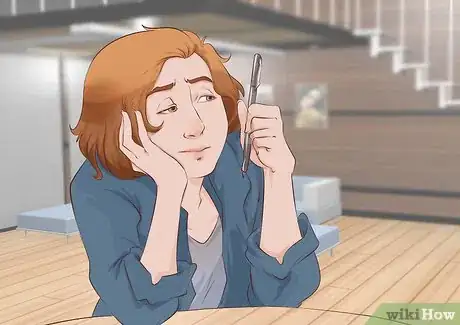
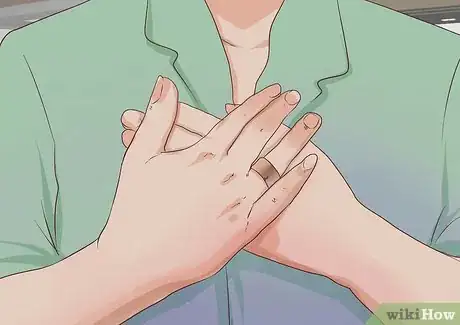



-Step-10.webp)
-Step-20.webp)
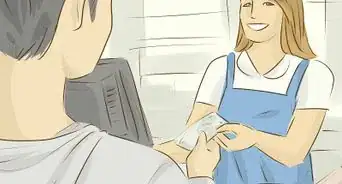







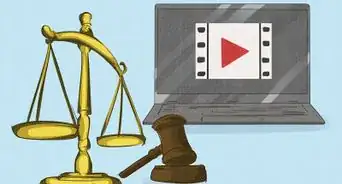
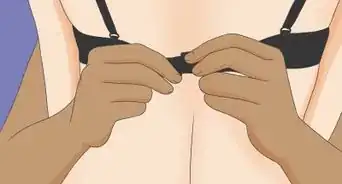









-Step-10.webp)
-Step-20.webp)



































Medical Disclaimer
The content of this article is not intended to be a substitute for professional medical advice, examination, diagnosis, or treatment. You should always contact your doctor or other qualified healthcare professional before starting, changing, or stopping any kind of health treatment.
Read More...